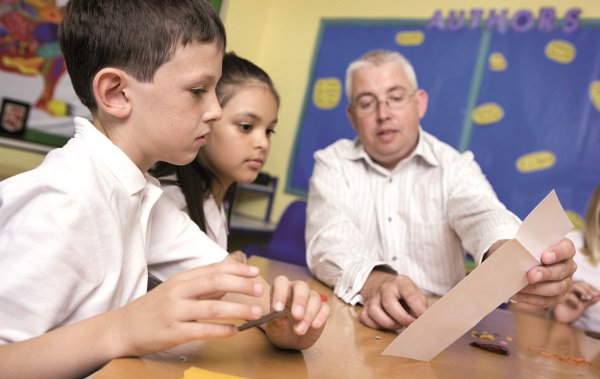If all pupils are to master the prerequisite skills for important lessons, teachers must have the resources to help them reach the same baseline.

When giving a lesson, all teachers face a dilemma. Some pupils will master all the lesson content, some will learn it partially and others will not learn it at all.
What can they do? Just continue to the next lesson and leave the struggling pupils behind? Or stop to re-teach the lesson, at the risk of slowing the pace of teaching and failing to cover important content? What should headteachers suggest, and what resources should they provide to help teachers ensure mastery for all pupils?
Back in the early 1970s, Professor Benjamin Bloom from the University of Chicago turned this dilemma on its head. Traditional classrooms, he argued, hold teaching time constant for all pupils but allow mastery to vary, inevitably leaving low achievers behind.
What if we did the reverse, and held mastery constant by allowing time to vary? What if teachers set a predetermined level of mastery (usually 80 per cent correct), and provided enough time and additional assistance to get all pupils to that level before advancing to the next topic?
Bloom demonstrated this approach in a series of brief experiments with pupils. Those who did not initially master lessons received as much tutoring as they need to improve. Unsurprisingly, these pupils performed far better than their peers, who had been taught the same content without the additional tutoring.
All well and good, but how many schools can call on Bloom or the University of Chicago to work one-to-one with their lagging pupils?
Two of Bloom’s graduate students, James Block and Lorin Anderson, adapted the principles of mastery learning into a practical model for classrooms. Teachers begin by identifying very clear lesson objectives, and then teach a lesson specifically designed to help pupils master those objectives.
Pupils who score 80% or above receive enrichment activities, while those who score less than 80% receive additional ‘corrective instruction’ from the teacher. Pupils then complete a summative test with which they have another chance to achieve mastery. This cycle may be repeated several times until all, or nearly all pupils reach 80% correct.
Studies of this group-based mastery learning have not demonstrated substantial benefits for learning. Any improvements among pupils who had received additional support have been balanced by a slower lesson pace and less coverage of other content.
Any improvements among pupils who had received additional support have been balanced by a slower lesson pace and less coverage of other content
However, there is some appeal to the principles of mastery. When pupils fail to master any given task or objective, they may not have the prerequisite skills for the next step.
For example, if pupils do not master multiplication, they are unlikely to succeed at division, which requires multiplication. They may also struggle with averages, which require both multiplication and division, and lose motivation.
Mastery learning makes most sense when teaching skills that are prerequisite for upcoming lessons. For example, it may be worthwhile to ensure that every pupil understands fractions before introducing decimals, or to ensure that essential phonics skills are embedded before the end of Year 1. These basics are so important for later learning that it will be worth giving time to ensure that every pupil has mastered them.
However, in subjects other than reading or maths these prerequisite skills may not be so crucial.
While it is often important that all pupils have mastered skills that are prerequisite for later learning, providing corrective instruction to some pupils and enrichment activities to others is not the only approach to mastery.
You could tutor struggling pupils in small groups outside of lesson time, perhaps on computers or exclusively for homework. This type of cooperative learning in small, mixed-ability teams may help pupils fill in each other’s gaps in learning, and give teachers an opportunity to provide more targeted support.
The main purpose of mastery learning is to set high expectations for all pupils, and do whatever possible to see that these expectations are met. Headteachers should encourage teachers to think this way, and provide them with the resources to bring all pupils to high levels.
The main purpose of mastery learning is to set high expectations for all pupils, and do whatever possible to see that these expectations are met
Bloom was correct in his concern that pupils not achieving mastery may fall further behind as they do not master crucial prerequisites for later learning.
However, teachers should have many tools at their disposal to solve this problem and help all pupils stay on track.